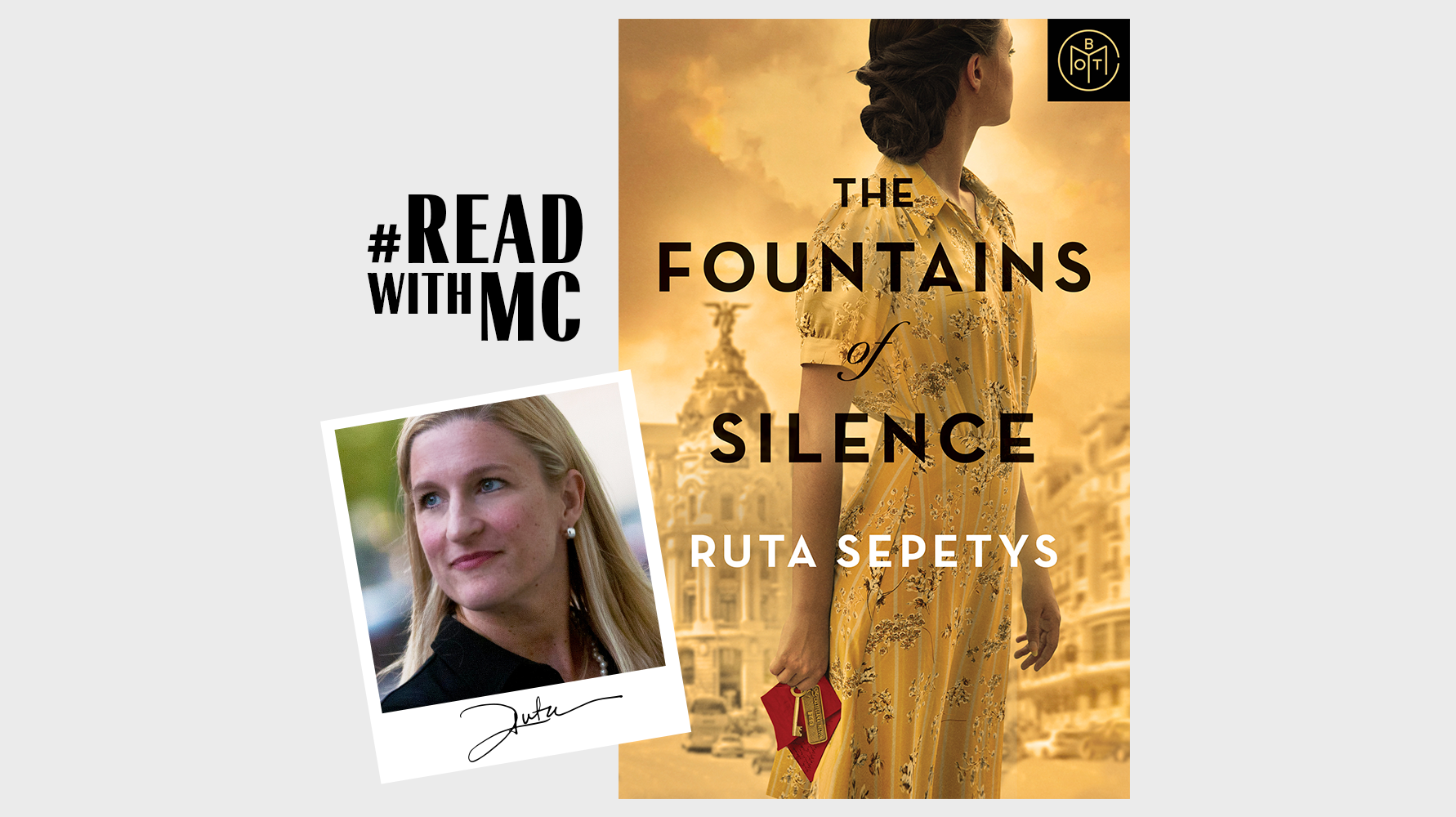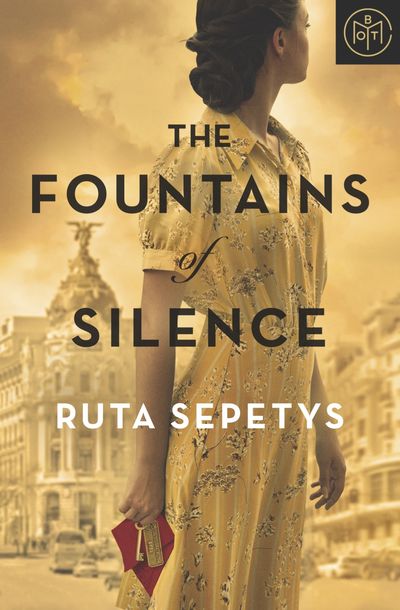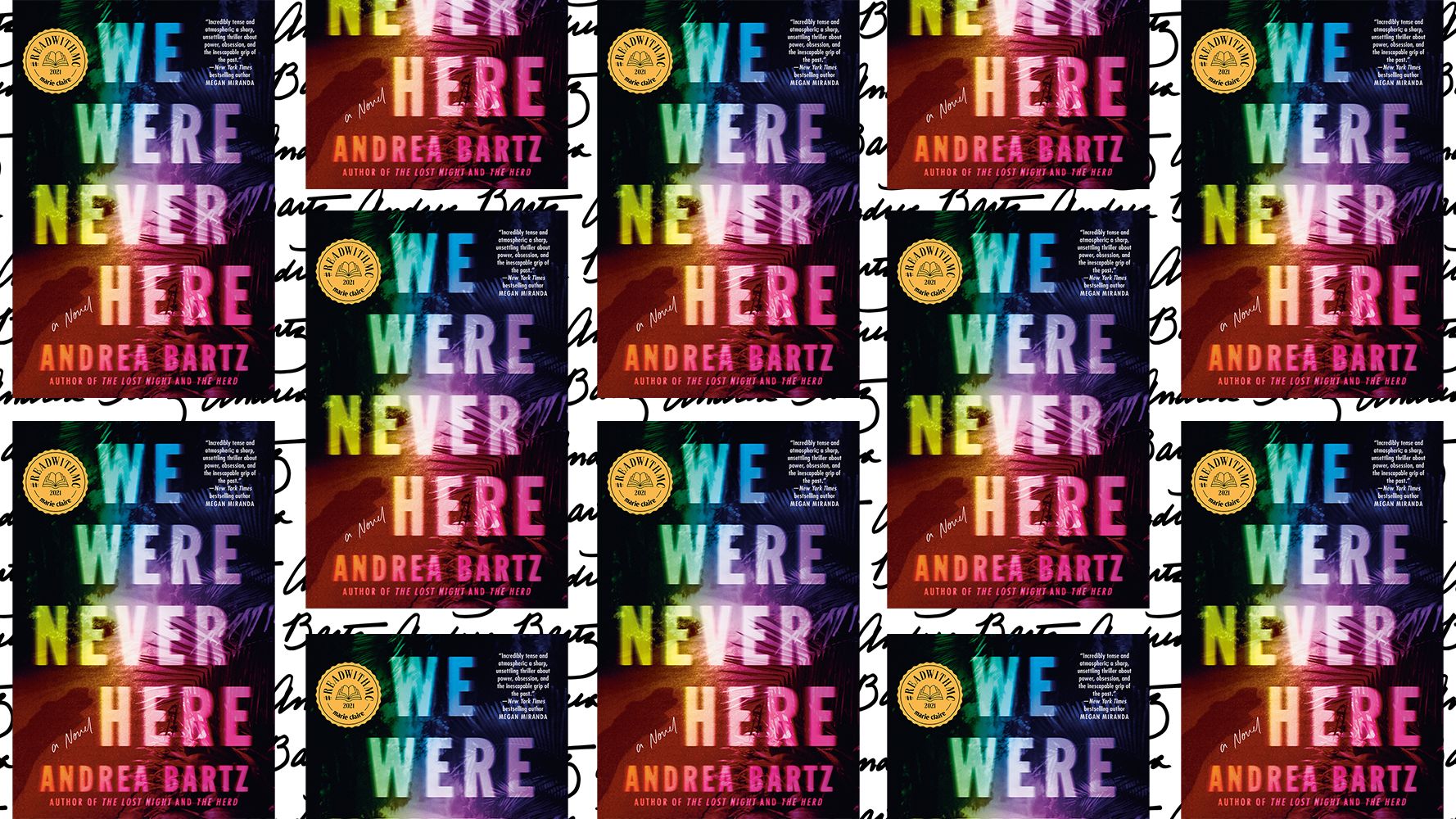Ruta Sepetys' 'The Fountains of Silence' Explores Spain's Dark History
But it also includes a lot of love.


Welcome to MarieClaire.com's Q&A author series—the spot where we ask the #ReadWithMC author-of-the-month five burning questions about her latest book. In October, we're reading The Fountains of Silence by best-selling author, Ruta Sepetys. If you're interested in the novel and looking for some friends to talk about it with, find out how to participate in MarieClaire.com's interactive monthly book club here.
To say Ruta Sepetys is into historical fiction would be an understatement. The 51-year-old author of Between Shades of Gray (2012), Out of the Easy (2014), and Salt to the Sea (2017) has become an expert on northern European history. In her latest novel, The Fountains of Silence, Sepetys strays from her roots and dives into Spain's culture from an American perspective—a "labor of love" that took nearly seven years of research.
The Fountains of Silence takes place in 1950s Madrid, while Spain was under the fascist dictatorship of General Francisco Franco. A 19-year-old tourist named Daniel meets Ana, a young maid who reveals to him the corruption and the inequality—masked by religion, and bullfighting, and beautiful architecture—that pervades the culture. Historical fiction may not be the first choice for a light read, but it certainly makes for a compelling one.
Here, Sepetys explains why she loves telling "lost stories," and how she was able to dive into the Spanish culture as a Lithuanian-American.
Marie Claire: What inspired you to write The Fountains of Silence?

Ruta Sepetys: All of my books are published in Spain, and when I would tour there, the Spanish readers showed such empathy and compassion for the hidden history in my novels. When I asked them about their own country’s history, they told me, "Oh, it’s too difficult for an outsider to understand." They said, "Ruta, it’s just too painful." And that broke my heart. I took it upon myself to do the research, and then my publisher sent me an article from The New York Times about some of the difficulties of Spain’s history under the dictatorship of Franco. So that kickstarted my interest to hopefully give voice to people who haven’t been able to tell their stories.
There's also the question of what right do we have to history other than our own? Here I am, a Lithuanian-American. Do I have the right to write about Spain’s history? That’s what inspired me to write from the viewpoint of an outsider, an American in Spain. It took seven years going back and forth to Madrid, renting an apartment, walking the path that I thought my characters would walk, and spending time there, speaking to true witnesses and survivors.
Get exclusive access to fashion and beauty trends, hot-off-the-press celebrity news, and more.
MC: What makes your book timely? Why should people read it now?
RS: When history is hidden in the shadows, the people who experienced those events probably feel forgotten or overlooked or misunderstood. And I think we can relate to that, especially in today’s news cycle. When we read about underrepresented characters like the ones in this story, they become human. And that’s such a valuable lesson. Behind these headlines and these chapters in history books, these are human beings. Not statistics. Knowledge of stories facilitates human understanding, and that’s something that resonates today and every day.
Some people might be fearful that I write books that are so sad and tragic, but I also work really hard to weave in notes of hope. I’ve found, from studying history for so many years now and writing these historical novels, that sometimes it’s in our most broken moments that we have an opportunity to find ourselves. Amidst these scenes of war, again and again, I’ve learned that people have fallen desperately in love and that people have forged these incredible lasting bonds during periods of adversity. So, although history can be full of sadness, it’s also full of love. The force of life and the power of love. There are equal parts of that in this book.
When we read about underrepresented characters like the ones in the story, they become human. And that’s such a valuable lesson. Behind these headlines and these chapters in history books, these are human beings.
MC: If you could be one character in the book, who would you be and why?
RS: Oh, I love this question! There’s a character in the book, Carlitos a.k.a. “Buttons,” who’s the bell boy at the hotel. He’s only 12 years old, and in Spain in the '50s, kids started working when they were 12. He knows everything that’s going on at the hotel. He saw when Ava Gardner lured another bell boy into her milk bath and when Frank Sinatra went ballistic because his case of toupées were lost. The bell boy saw everything and, as a writer, I would love to be a fly on the wall like that.
MC: Who would play the main characters in a movie? Cast your protagonist and antagonist.
RS: That's hard because we need people who are fluent in Castilian Spanish and English. What about Bianca Santos from The Fosters? She’s bilingual. And Daniel...someone sweet and kind. What about Enrique Iglesias? He’s so kind and wonderful, completely fluent, and beautiful. And then I would cast Penélope Cruz as Julia, Ana’s sister. Penélope grew up in Madrid, and her family was in a working-class neighborhood similar to Ana’s. And then Javier Bardem, whose uncle was imprisoned by Franco for making movies, as Miguel who's Daniel’s mentor.
MC: What's currently on your nightstand?
RS: I’m doing an appearance at the Texas Book Festival with Leila Meacham, so to prepare for my appearance I’m reading her new book Dragonfly, which is also historical. It’s about five young spies who are embedded in the highest Nazi ranks in occupied Paris, and it’s super compelling.
Listen to an exclusive excerpt of the book available on Audible, below.
Audio excerpted courtesy Penguin Random House Audio from The Fountains of Silence by Ruta Sepetys. Read by Ruta Sepetys, Maite Jauregui, and a full cast.
Starting this month, we’re partnering with Book of the Month; new members can head to bookofthemonth.com/readwithmc to purchase The Fountains of Silence for only $9.99 using code READWITHMC. Make sure to leave your review on social with the hashtag #ReadWithMC by October 28 for a chance to be featured on MarieClaire.com.
For more stories like this, including celebrity news, beauty and fashion advice, savvy political commentary, and fascinating features, sign up for the Marie Claire newsletter.
RELATED STORY

Rachel Epstein is a writer, editor, and content strategist based in New York City. Most recently, she was the Managing Editor at Coveteur, where she oversaw the site’s day-to-day editorial operations. Previously, she was an editor at Marie Claire, where she wrote and edited culture, politics, and lifestyle stories ranging from op-eds to profiles to ambitious packages. She also launched and managed the site’s virtual book club, #ReadWithMC. Offline, she’s likely watching a Heat game or finding a new coffee shop.
